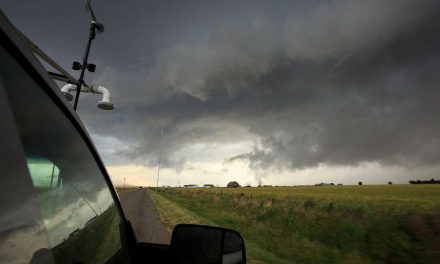AUSTIN (Nexstar) — The Electric Reliability Commission of Texas officially filed its final winter readiness inspections report on Tuesday, stating that 321 of the 324 generators it inspected are compliant with the new weatherization requirements.
Power generators were required to weatherize by Dec. 1, 2021, after lawmakers passed major grid reforms in the spring following the February freeze. Between Dec. 2 and 22, ERCOT hired contractors to perform inspections at 302 generation resources and 22 transmission substations which account for 85% of the grid’s total power.
Of the 302 generators inspected, ERCOT’s inspectors initially identified potential deficiencies at only ten, which represents about 1.7% of the total ERCOT generation. Now, Tuesday’s report outlines that number is down to 3, or 0.4%.
That Dec. 1 weatherization requirement for power generators, though, was just one of the first deadlines the council is required to meet.
Last week, ERCOT outlined concerns about staffing shortages, and how that could hinder their ability to meet future grid reliability deadlines ahead of winter 2023.
The PUC, in turn, advised ERCOT hire contractors in the meantime.
“We know that you’re squeezed on staff,” PUC commissioner Will McAdams said Thursday. “We are interested in you leveraging your position with third parties moving forward.”
But Lewin noted this shortage could signal long-term hiring problems for ERCOT.
“The scapegoating of ERCOT by the governor and the legislature in the days, weeks and months after the outages are going to make it really hard for them to attract talent. I think that this is going to be a problem for years to come,” Doug Lewin, an energy analyst, said.
“All you’ve been hearing is how terrible the organization is, what a horrible job it’s done. ERCOT clearly had problems or continues to have problems, but they received a much larger share of the blame than they actually deserved. And they’re gonna have a really hard time attracting talent,” Lewin said.
ERCOT did hire contractors to complete their inspections for weatherization by Dec. 31, on time. But, the board Monday also weighed bringing those inspector jobs in-house next year, which would just add to the current hiring difficulties.
“It’s a complicated system,” Lewin said, drawing an analogy to a piece of clothing. “You pull on a thread on one side and it starts coming apart on the other. They’re pulling on all these threads at once and not taking into account what that does to the whole.”
On the day before submitting its final weatherization & inspection report, the ERCOT leaders briefed the new board of directors on weatherization progress so far.
“We found 10 potential deficiencies at dispatchable generation sites. We didn’t find any at the intermittent renewable resource sites. We found six at the transmission service providers facilities,” weatherization and inspection director David Kezell outlined.
Those generators will all be forced to update their weatherization implementations, or face $1 million dollar fines per incident, per day, according to the Public Utility Commission, which oversees ERCOT.
ERCOT is also working with 54 out of nearly 850 power generators that have filed good-faith non-compliance requests, which means they are working to weatherize, but ran into systematic or equipment delays before the Dec. 1 deadline.
“We expect most of them to be completed in the first quarter of 2022. There could be some that go longer due to equipment unavailability, they simply can’t get what they need to fix something,” Kezell explained.
ERCOT requires the generators to check in twice monthly, once on the 15th, and once at the end of the month.
When asked how our grid would fare if Texas faced a similar storm to last year’s this winter, Kezell replied, “That’s the $10,000 question, isn’t it?”
“I feel very confident that it would shrink substantially. I won’t hazard a guess as to what percentage of it but I believe it would shrink substantially,” Kezell said, but would not put a metric on how many fewer outages we would see.
That’s in part due to factors outside of ERCOT’s control, like natural gas suppliers, which the Texas Railroad Commission regulates. One board member called out the more lax requirements to weatherize directly.
“I know they’ve got a little bit extra time to comply. But to me, that is sort of the big, glaring weakness right now,” he said.
Energy analysts agree that’s one of the biggest issues the grid faces right now.
“So much of the focus of the activity in the 11 months since the outages has been on power plants, and so little on gas supply, it is entirely possible that all of the work done on the power plant side really is worth very little, because gas supply is not weatherized, and you can’t get gas to the plant,” Lewin said after the board’s meeting Monday.
A back-and-forth between Texas elections officials over “high” levels of rejected mail-in ballot applications has left advocates worried about the impact on elderly or disabled voters.
Molly Broadway, a training and technical support specialist for voting rights for Disability Rights Texas, said she was bracing for an influx of calls to their voter hotline after the Travis County Clerk Dana DeBeauvoir announced her office had rejected as many as 50% of the applications they had received.





